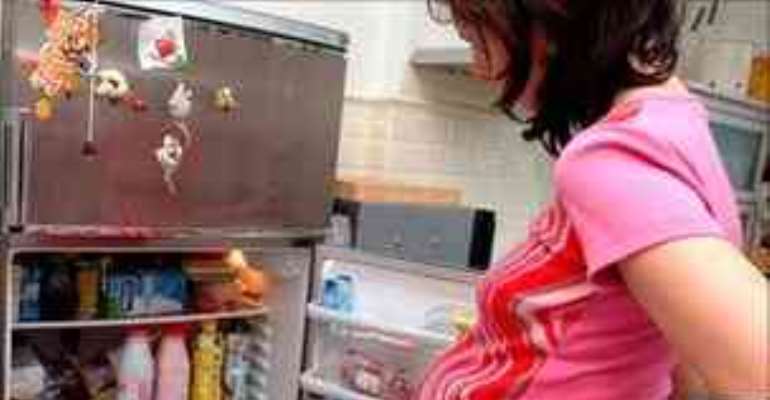WORLD WAR II DUTCH FAMINE BABIES’ BRAINS ‘AGING FASTER’

Diet during pregnancy can have long-term effects for the health of babies
People who were still developing in the womb at the time of severe World War II food shortages did worse than others of similar ages at mental tests almost 60 years later, researchers say.
Scientists, writing in the PNAS journal, said the 1944 Dutch “famine” may have accelerated brain ageing.
They studied nearly 300 adults who had been foetuses at the time.
UK experts said even severe morning sickness was unlikely to cause a similar level of malnutrition today.
The so-called Hongerwinter was a six-month period during which food deliveries to the people of the northern Netherlands were restricted by German occupying forces.
Continue reading the main story
Related stories
Poor diets 'kill 3.5m children'
Baby famine link to schizophrenia
This produced a humanitarian disaster. By April 1945, it was estimated that 20,000 people had died as a result of malnutrition.
Many expectant mothers survived on between 400 and 800 calories a day.
However, the fact that this brief famine struck a previously reasonably well-nourished population allowed an almost unique opportunity for later scientists to study the effects of malnutrition on a group of children conceived around that time.
In this case, a group of almost 300 adults in their late 50s, all of whom had been exposed to the famine in the first or second trimester of their mother's pregnancy, were given mental tests, and the results compared to those of similarly aged people.
'Effective parasites'
This was the second time the group had been tested – tests in the 1970s had revealed no differences in performance.
However, in the second study, their results in a “selective attention test” were worse. Selective attention tests measure how well the brain can deal with competing distractions.
A classic example is a sequence of colour words, printed in different coloured ink, with the person asked to name the colour of each word.
Continue reading the main story
'
Start Quote
If anything it is those women who are eating for two, or even three or four, who are more likely to cause a problem for their baby'
Fiona Ford
British Dietetic Association
There was nothing at birth to suggest a potential problem – as a group, their average birthweight was similar to babies whose mothers had not been exposed to famine.
Poorer performance in this type of test is generally linked to advancing age, and the scientists, from the University of Amsterdam and Calvin College in Michigan, US, suggested this might mean the brains of those in the study group had effectively started ageing faster as a result of malnutrition in the womb.
Dr Robert Fraser, an obstetrician based at Sheffield University, with a research interest in pregnancy nutrition, said that while the results were “interesting”, they should not alarm modern mothers.
He said: “A baby is really a rather efficient parasite – a pregnant woman can be close to death from anaemia and the resulting baby born with a reasonably normal iron level in the blood.”
He said that the severity of the Dutch famine meant that similar problems were highly unlikely for UK women.
“It was an awful, terrible time – people were scraping bin-lids with spoons, they were so desperate.”
Dehydration
It is not unknown for modern women to be poorly nourished during the first and even the second trimester of pregnancy – the best-known cause being extreme morning sickness.
However, Fiona Ford, a dietician and spokesman for the British Dietetic Association, said: “The malnutrition would have to be pretty bad – with food intake at incredibly low levels, and there is evidence that the body is capable of adapting in these circumstances to protect the baby.
“If anything it is those women who are eating for two, or even three or four, who are more likely to cause a problem for their baby.”
She said that, as a guide, women who lose 10% of their bodyweight or become dehydrated during pregnancy should consult their midwife or obstetrician.
